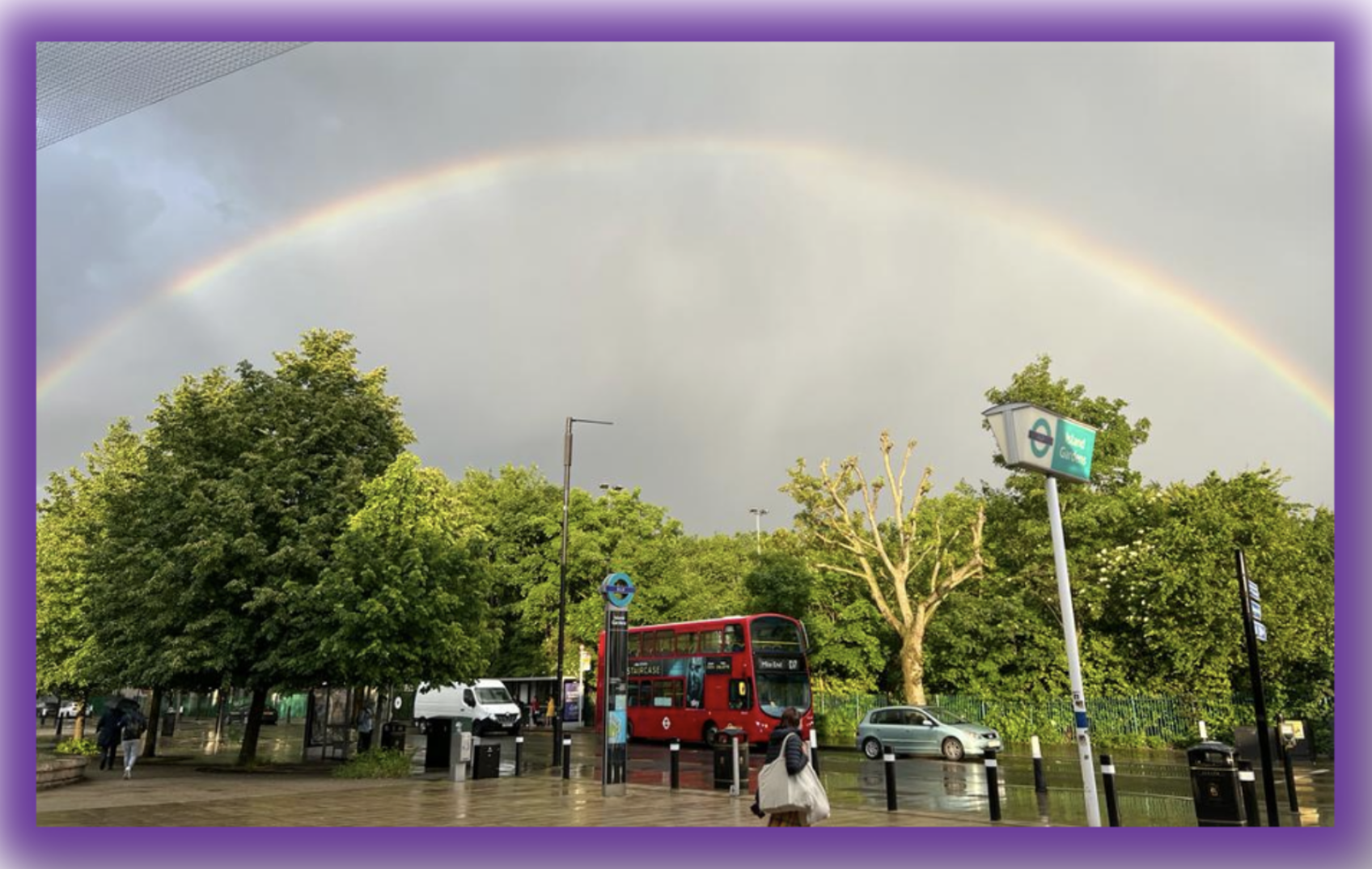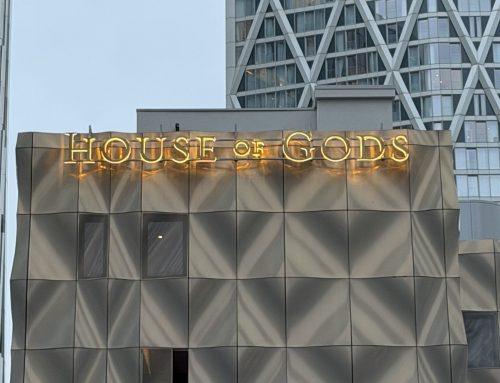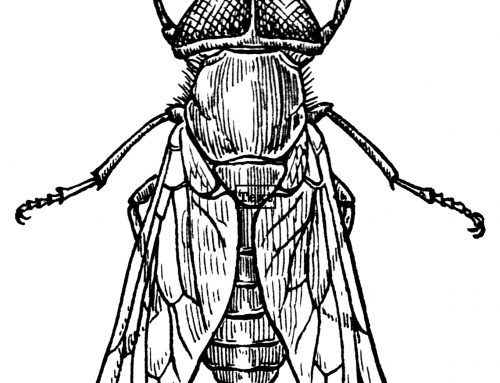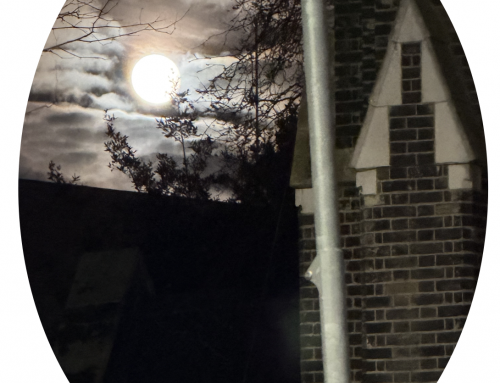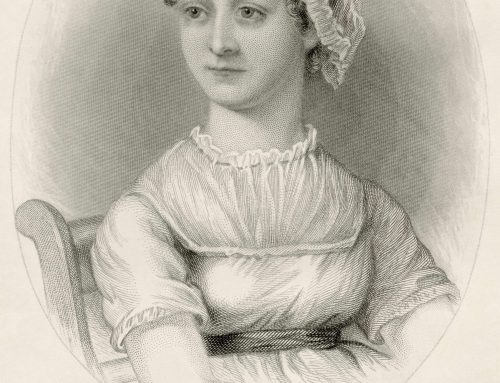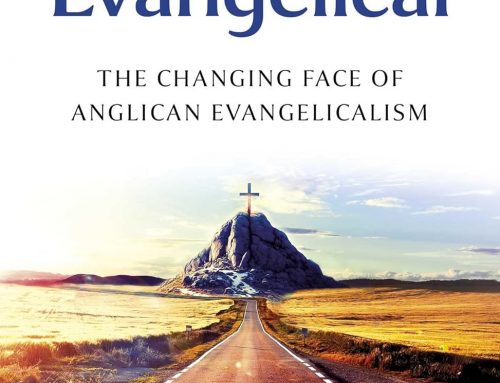Thinking Biblically About Climate Change
David P. Gushee
Sermon – First preached: St. James Church, Chipping Campden, Gloucestershire, U.K.
Sunday 22nd October 2023
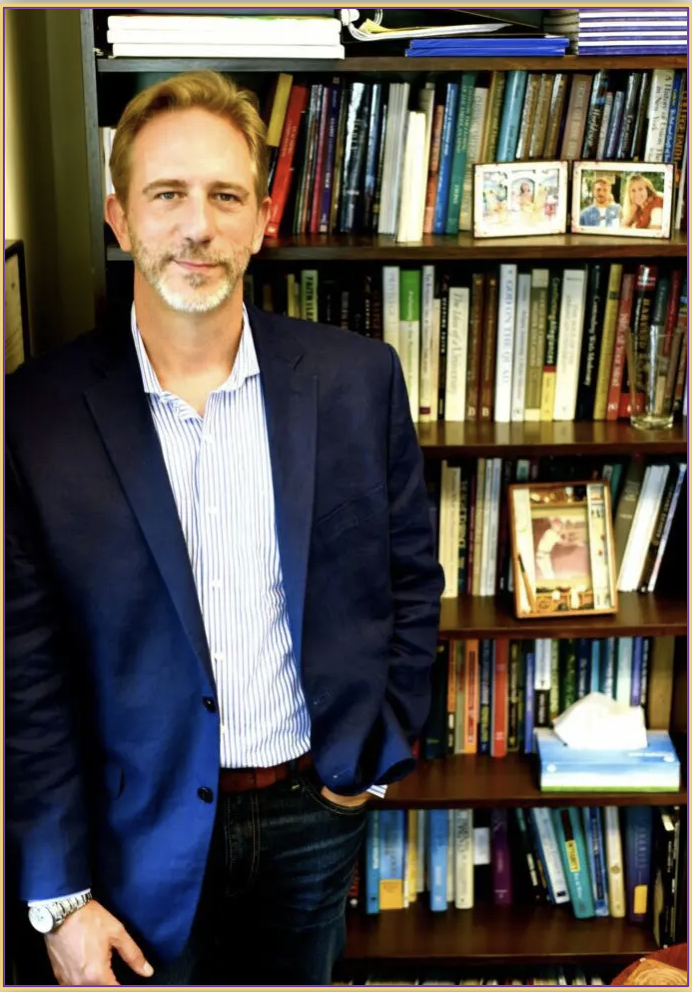
The Rev’d Prof. Dr. David P. Gushee (PhD, Union Theological Seminary, New York) is Distinguished University Professor of Christian Ethics at Mercer University and Chair of Christian Social Ethics at Vrije Universiteit (Free University) Amsterdam, and Senior Research Fellow, International Baptist Theological Study Centre.
He is the elected Past-President of both the American Academy of Religion and the Society of Christian Ethics signaling his role as one of America’s leading Christian ethicists. He is the author, co-author, editor, or co-editor of more than 28 books and over 175 academic book chapters, journal articles, and reviews.
Greetings to all of you, and thanks to the Vicar Craig Bishop and Jay Niblett for arranging this visit. My wife Jeanie (greetings) and I find Chipping Campden one of our favorite places in the whole world, and we are thrilled to be visiting for the first time since Covid.
I am a Christian ethicist, and a pastor, and wearing both hats I have been asked to address climate change. I understand that this church, and other churches in the region, have committed to the eco-church movement. A great commitment. Today let us think about how scripture can inform such a commitment in the current moment. These texts that I have selected for today and that are available to you are very useful to help frame Christian thinking about ecological matters, with interesting implications for the problem of climate change. But I suggest to you that even these best and most relevant resources in scripture reveal some challenges for dealing with what we are now facing.
Psalm 104
God the Creator and Provider
1 Bless the Lord, O my soul.
O Lord my God, you are very great.
You are clothed with honor and majesty,
2 wrapped in light as with a garment.
You stretch out the heavens like a tent;
3 you set the beams of your chambers on the waters;
you make the clouds your chariot;
you ride on the wings of the wind;
4 you make the winds your messengers,
fire and flame your ministers.
–God as Creator, controller of creation, grandeur of creation
You set the earth on its foundations,
so that it shall never be shaken.
6 You cover it with the deep as with a garment;
the waters stood above the mountains.
7 At your rebuke they flee;
at the sound of your thunder they take to flight.
8 They rose up to the mountains, ran down to the valleys,
to the place that you appointed for them.
9 You set a boundary that they may not pass,
so that they might not again cover the earth.
–solidity of the earth, waters deadly if too high, but directed to their proper place, a seeming guarantee of stability
10 You make springs gush forth in the valleys;
they flow between the hills,
11 giving drink to every wild animal;
the wild asses quench their thirst.
12 By the stream the birds of the air have their habitation;
they sing among the branches.
13 From your lofty abode you water the mountains;
the earth is satisfied with the fruit of your work.
14 You cause the grass to grow for the cattle
and plants for people to cultivate,
to bring forth food from the earth
15 and wine to gladden the human heart,
oil to make the face shine
and bread to strengthen the human heart.
16 The trees of the field are watered abundantly,
the cedars of Lebanon that he planted.
17 In them the birds build their nests;
the stork has its home in the fir trees.
18 The high mountains are for the wild goats;
the rocks are a refuge for the coneys.
–God’s provision for land animals, birds, humans, earth itself. A good word – this is God’s world, and God has provided abundantly for us and all creatures – we are among the creatures
–A similar note is struck by Jesus in Mt 6:25-33 –
Therefore I tell you, do not worry about your life, what you will eat or what you will drink,[a] or about your body, what you will wear. Is not life more than food and the body more than clothing? 26 Look at the birds of the air: they neither sow nor reap nor gather into barns, and yet your heavenly Father feeds them. Are you not of more value than they?
Continuing the psalm:
19 You have made the moon to mark the seasons;
the sun knows its time for setting.
20 You make darkness, and it is night,
when all the animals of the forest come creeping out.
21 The young lions roar for their prey,
seeking their food from God.
22 When the sun rises, they withdraw
and lie down in their dens.
23 People go out to their work
and to their labor until the evening.
–The provision of the rhythms of nature, day and night, hot and cool
–All creatures depend on the stability of these rhythms
O Lord, how manifold are your works!
In wisdom you have made them all;
the earth is full of your creatures.
25 There is the sea, great and wide;
creeping things innumerable are there,
living things both small and great.
26 There go the ships
and Leviathan that you formed to sport in it.
27 These all look to you
to give them their food in due season;
28 when you give to them, they gather it up;
when you open your hand, they are filled with good things.
29 When you hide your face, they are dismayed;
when you take away their breath, they die
and return to their dust.
30 When you send forth your spirit, they are created,
and you renew the face of the ground.
–God as creator of all this manifold diverse glorious creation, including the wonders of the seas. All creatures depend on God for life and breath, the cycle of life
31 May the glory of the Lord endure forever;
may the Lord rejoice in his works—
32 who looks on the earth and it trembles,
who touches the mountains and they smoke.
33 I will sing to the Lord as long as I live;
I will sing praise to my God while I have being.
34 May my meditation be pleasing to him,
for I rejoice in the Lord.
35 Let sinners be consumed from the earth,
and let the wicked be no more.
Bless the Lord, O my soul.
Praise the Lord!
–A great part of God’s glory is his work and works in creation; even its occasional terrors reflect the wild grandeur of God.
–May these glories of the Lord endure forever. The solidity, stability, provision, rhythms of nature on which we build our lives, economies, and culture, on which all creatures in their ecosystems depend. Glorious indeed. But what if human beings on the other side of the Industrial Revolution turn out to have the power to cause disruption of this solidity and stability, of these provisions and rhythms of nature on which we depend. Was this envisioned in scripture?
The same issue is raised in this little text from Genesis 8:
20 Then Noah built an altar to the Lord and took of every clean animal and of every clean bird and offered burnt offerings on the altar. 21 And when the Lord smelled the pleasing odor, the Lord said in his heart, “I will never again curse the ground because of humans, for the inclination of the human heart is evil from youth; nor will I ever again destroy every living creature as I have done. 22 As long as the earth endures,
seedtime and harvest, cold and heat, summer and winter, day and night
shall not cease.”
–You remember the story. Genesis tells of a good creation, the fall into sin, the worsening spiral of sin notably violence, God’s broken heartedness, God’s decision to wipe out creation and creatures, then the last-minute recognition of the goodness of Noah and the decision to bear with humanity, to rebuild creation through Noah and his family. The covenant with Noah. Here is where it begins. Here God is promising not to send ecological catastrophe on the earth, to sustain the rhythms of creation, regardless of the evil that humans do. Jesus refers to this later in the SMT when he talks about how God’s love for humanity is demonstrated in sending sun and rain on the just and unjust alike.
–I once had this text quoted at me by a climate change denier who essentially said, See, here is the promise that guarantees we don’t need to worry about catastrophic flooding due to supposed dangers of climate change. But what if the evidence before our eyes shows that through our disruption of atmospheric conditions through our greenhouse gas emissions? WE are creating the conditions for such massive flooding of coastal areas, which is already happening? Is a promise that God will not send such flooding (if that is how this is to be read) a promise that our own behavior will not have its natural consequences? I do not think so.
We are creating distress in creation. We are doing it. And that brings me to our final text today. Romans 8:
18 I consider that the sufferings of this present time are not worth comparing with the glory about to be revealed to us. 19 For the creation waits with eager longing for the revealing of the children of God, 20 for the creation was subjected to futility, not of its own will, but by the will of the one who subjected it, in hope 21 that the creation itself will be set free from its enslavement to decay and will obtain the freedom of the glory of the children of God. 22 We know that the whole creation has been groaning together as it suffers together the pains of labor, 23 and not only the creation, but we ourselves, who have the first fruits of the Spirit, groan inwardly while we wait for adoption, the redemption of our bodies. 24 For in hope we were saved. Now hope that is seen is not hope, for who hopes for what one already sees? 25 But if we hope for what we do not see, we wait for it with patience.
–This mysterious passage resonates in new ways today. Here we learn of a suffering, groaning, longing, decaying creation. Here the Apostle Paul catches a glimpse of the dark side of creation, which is not all happy provision but also combat, decay, and death. The special resonance today is that creation is groaning in new ways under human impact – the Anthropocene – the era in which humans are altering, changing, harming creation to an extent that only massive natural disasters like asteroid strikes did in the past.
–The creation is groaning; the creation is waiting for redemption. The creation is waiting with eager longing for the revealing of the children of God. Jesus taught that the true sons and daughters of God are those who do God’s will. I do not believe it is too much to say that today, the suffering creation is waiting for children of God who will do God’s will, which in this moment must include taking all possible and necessary steps to ease the special distress of creation known as climate change.
–There are ancient assumptions embedded quietly in these texts – that God alone has the power to create, alter, or destroy the preconditions for human, animal, and ecosystem well-being and even survival. But what if human beings have grown up over the millennia to seize some of that power?
This is a problem that has been discussed in Christian ethics since the mid-20th century. All earlier generations of humans knew form hard experience that their power was small compared to the powers – and Divine Power – that bore down on them, that set the conditions of their fragile lives, their fragile survival. We lived in conditions set by powers greater than ourselves. This we knew. A bad crop, a harsh winter, a raging disease, these came upon us and there was little we could do other than hope to survive.
But, as Dietrich Bonhoeffer wrote, humanity has “come of age.” Part of humanity coming of age is that our power has incrementally grown and grown since we began developing so many forms of technological mastery – the mastery first visible in the Industrial Revolution and ever growing since then. This technological mastery has created modern civilization in all its forms, including the extraordinary miracle that we can build planes that can bring Americans in 7 hours across 3000 miles of ocean to the Cotswolds.
It has taken humanity several generations, however, to recognize that these powers also carry spillover effects on the creation itself that are more than inconvenient. Londoners knew about soot and air pollution by the 18th century, people noticed when their rivers were polluted, or their food sources contaminated. But no one imagined that the sheer weight of a global industrial economy would alter the atmospheric conditions for the entire planet. So, our technology went on well ahead of our ability to recognize its impact, and now we are playing catchup, with many of the destructive consequences of global warming already baked into the near-term planetary future.
But now no one can claim not to know. The question is whether we will listen to what the best of the world’s scientists tell us we should do now. Mainly in reducing CO2 and methane emissions, through transitioning to greener energy sources, seeking greater energy efficiency, building greener transport and buildings, revising our agricultural practices, preserving and planting forests, and making changes in our industrial practices.
My father, who was an environmental and energy policy specialist, liked to say that God created a quite resilient creation, a world that can absorb a fair amount of abuse and recover from it. But he went on to say, not an infinitely resilient creation. There are limits. We are hitting those limits. The same God who created the world now looks to human beings to help preserve it. This is what doing God’s will looks like in this moment. May we be found faithful.
